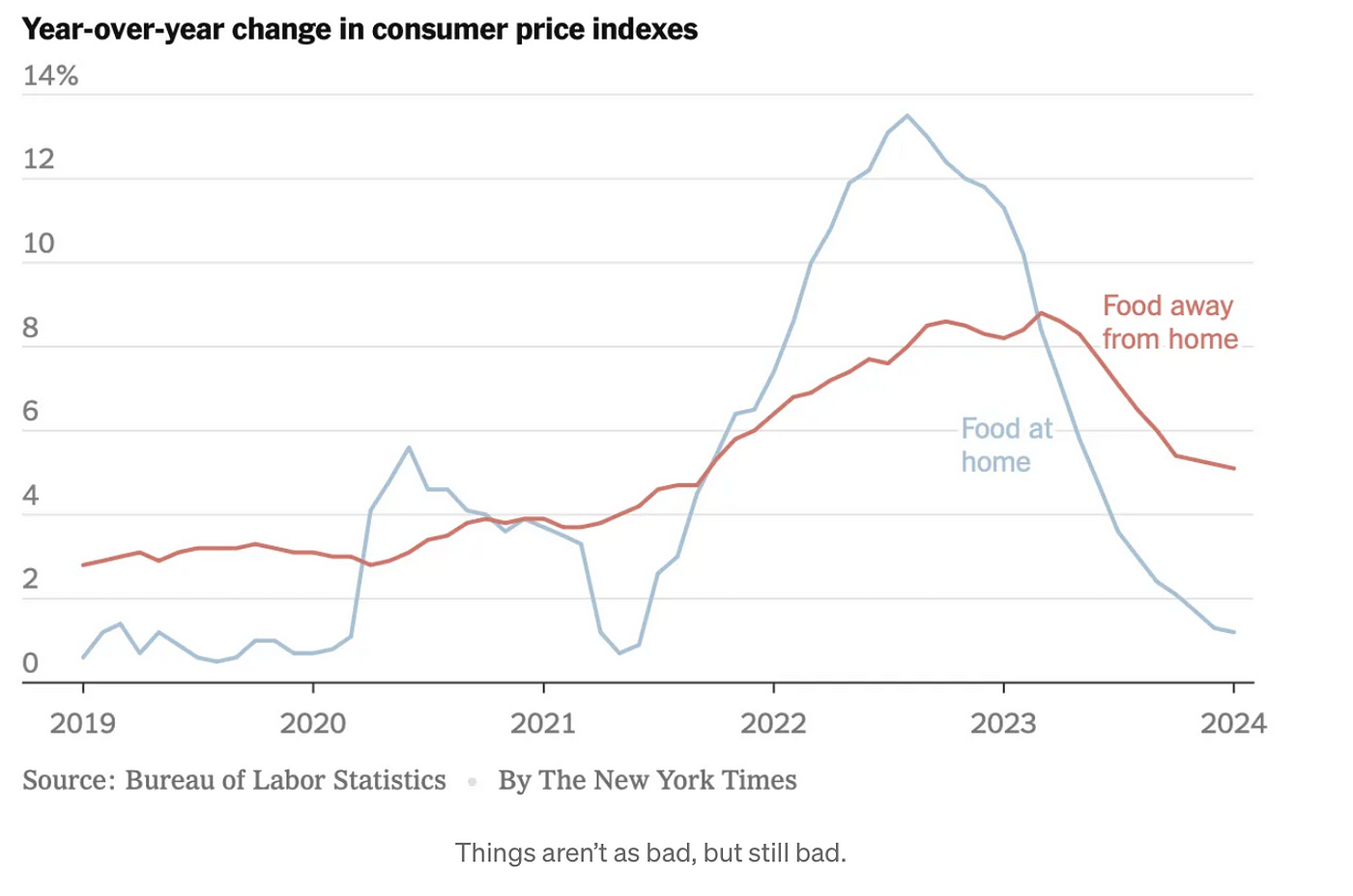- Food Jungle
- Posts
- Let Them Eat Cake
Let Them Eat Cake
14th March, 2024

Hi everyone and welcome to the interview and analysis corner! This week, we’re going to hear from, well, me!
I wanted to share my thoughts on Gary Pilnick’s - WK Kellogg’s CEO - recent comments, regarding his ideas on eating cereal for dinner. And while I may have covered the story in a previous issue of the Monday bulletin, I wanted to go into a little more detail.
Let’s dig in.

Before I was as pale as paper.
In a recent interview on CNBC, the CEO of WK Kellogg’s — Gary Pilnick — caused social media outrage when he encouraged poorer families to eat cereal for dinner.
He began with saying that “the cereal category has always been quite affordable, and it tends to be a great destination when consumers are under [financial] pressure”.
He then followed up with another doozie: “If you think about the cost of cereal for a family versus what they might otherwise do, that’s going to be much more affordable”.

Of course, Pilnick is by no means the only executive in the food industry who has tried to push cereal and snacks to the centre of the dinner table.
PepsiCo CEO — Ramon Laguarta — also expressed a hope that consumers would use their snacks as “side dishes and ingredients” in meals in an effort to to get the consumer eating Lays beyond just a casual munching option.
Why this sucks
To answer this question, we have to look at three broad categories: inflation, earnings and health.
When we look at these categories in greater detail, we can properly understand just how inconsiderate Pilnick’s assumptions are.
Inflation
It’s no secret that food inflation - whether due to climate change or geopolitical conflict - is breaking records. Meat is more expensive than ever, the price of cocoa has surpassed a 46-year record, and the list goes on.
The price of cereal hasn’t eased up either. The average price of breakfast cereal in the US, for example, went up 6% in 2021, 13% in 2022, and 0.3% in 2023.
And while food inflation has slowed down recently, that doesn’t mean that it has STOPPED. In fact, the price for food is still climbing.

Earnings
PepsiCo reported a fourth-quarter revenue drop late last month and Kellogg’s fourth-quarter sales saw a 10% volume drop as well.
And despite advertising themselves as the “affordable” option, both Kellogg’s and PepsiCo have continued to raise prices for their products despite acknowledging the food inflation problem.
So, both companies have acknowledged that there is a food inflation problem and, still, have raised their prices. As we can see from their recent earnings, all eyes seem to be on the bottom line.
Health
If we were to ignore the crystal clear focus on company finances, much of the outrage on social media stemmed from the fact that an incredibly influential figure has advised people to eat ultra-processed food (“UPF”).
If you read the most recent Food Jungle newsletter, you will have the story on how higher UPF consumption - like cereal for dinner - was directly linked to 32 harmful health effects.
The effects included: a 50% increased risk of cardiovascular disease-related death, a 22% increased risk of depression, and a 12% greater risk of type 2 diabetes.
Not only has Pilnick encouraged people to eat cereal for dinner, while advertising the product as affordable and raising its price, but he is openly encouraging the consumption of a product that causes long term damage to a person’s health.
Backlash
Oh you bet there was. Here’s just a snippet of what’s been said on social media:
“This fool is making 4 MILLION bucks a year! Do you think he’s feeding his kids cereal for dinner?”
“What the hell kind of dystopian hellscape is this? Give the peasants cereal for dinner!”
“Advertising to hungry people that cereal might be good for dinner is not meeting people where they are. It’s exploiting the hungry for financial gain.”
What’s next?
Whatever Big Food’s next move is, it surely can’t be any worse than this. Perhaps we’re just going to have to let it slide until we completely forget about it in five years’ time.
On the other hand, perhaps this could be a wake up call. This could serve as motivation for consumers to stop eating the ultra-processed stuff — even if it is out of spite — and lean into healthier eating.
That would be something: eating healthily out of spite for the big companies.

Reply